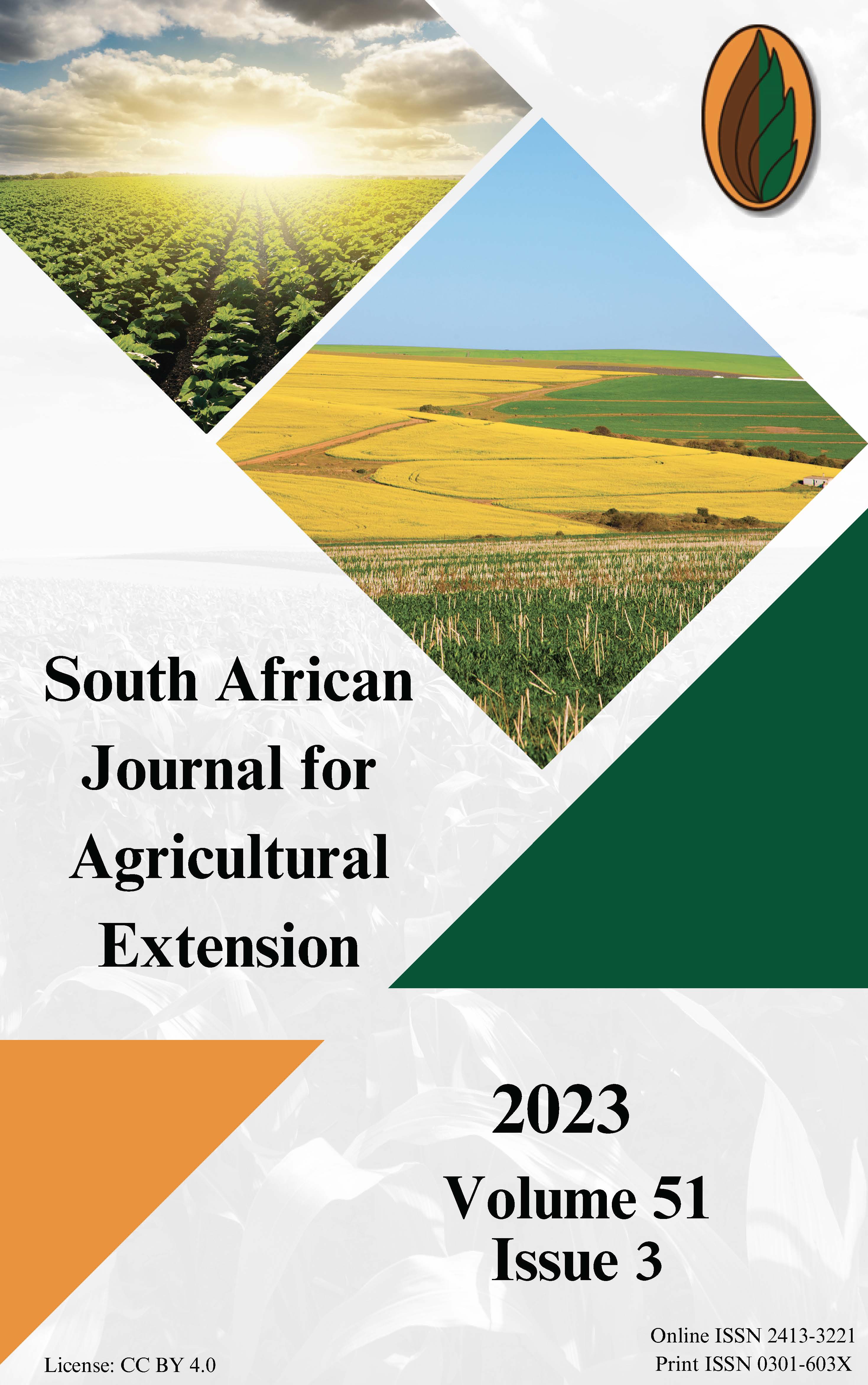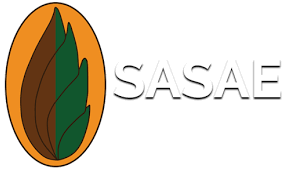Exploring Information Needs and Diverse Sources for the Growth and Sustainability of the South African Honeybush Industry
DOI:
https://doi.org/10.17159/2413-3221/2023/v51n3a14650Keywords:
Agricultural extension, Honeybush, Information needs, Information sourcesAbstract
Honeybush is an indigenous fynbos shrub with the potential to contribute significantly to socio-economic development in rural South Africa. However, there exists a knowledge gap on the types of information that role players in this emerging agricultural sector need to produce quality honeybush tea efficiently, as well as their preferences for obtaining information and guidance materials. A survey of 44 role players along the Honeybushsh value chain was conducted to determine the nature of the information they require and their preferred communication formats. The results show that the most pressing need is information about general honeybush cultivation, followed by detailed guidance on cultivating different species and implementing quality management systems, such as organic certification. Respondents also highlighted the urgency of improving consumer awareness of honeybush tea. Other information related to sustainable cultivation practices, enhancing the industry’s sustainability and helping with marketing. Respondents preferred information from research institutions and wanted to receive the information in a face-to-face (interpersonal) format. These findings could help to improve agricultural extension and fill knowledge gaps in the South African honeybush industry.
Downloads
References
AGRICULTURAL RESEARCH COUNCIL (ARC)., 2022. Honeybush – about the DSI/ARC Honeybush Project. Available from: http://www.arc.agric.za/arc-infruitec-nietvoorbij/honeybush/Pages/default.aspx
BABU, S.C. & GLENDENNING, C.J., 2019. Information needs of farmers: A systemic study based on farmer surveys. In S.C. Babu & P.K. Joshi (eds.), Agricultural extension reforms in South Asia. London, UK; San Diego, CA, USA: Academic Press.
BESTER, C., JOUBERT, M.E. & JOUBERT, E., 2016. A breeding strategy for South African indigenous herbal teas. Acta Hortic., 1127: 15–22.
BOWIE, J., 1830. Sketches of the botany of South Africa. South African Quart. J., 1: 27–36.
Department of Agriculture, Forestry and Fisheries (DAFF)., 2016. A profile of the South African honeybush tea market value chain. Pretoria.
DAVIS, K., LANDINI, F., VAN NIEKERK, J., GREEN, K. & TERBLANCHE, S.E., 2019. Extension officers’ perceptions of extension and innovation in South Africa. SAJAE, 47(4): 152–161.
DAVIS, K.E., 2009. Agriculture and climate change: An agenda for negotiation in Copenhagen. The important role of extension systems. Focus 16, Brief 11. Washington, DC: International Food Policy Research Institute.
DEPARTMENT OF ENVIRONMENTAL AFFAIRS., 2012. South Africa’s bioprospecting, access and benefit-sharing regulatory framework: Guidelines for providers, users and regulators. Pretoria.
DIEKMANN, F., LOIBL, C. & BATTE, M.T., 2009. The economics of agricultural information: Factors affecting commercial farmers’ information strategies in Ohio. RAE, 31(4): 853–872.
DU PREEZ, B.V.P., 2020. Development of a quality grading system for the honeybush (Cyclopia spp.) tea industry. Doctoral thesis, Stellenbosch University.
DUVESKOG, D., FRIIS-HANSEN, E. & TAYLOR, E., 2011. Farmer field schools in rural Kenya: A transformative learning experience. J. Dev. Stud., 47(10): 1529–1544.
ELLY, T. & SILAYO, E.E., 2013. Agricultural information needs and sources of the rural farmers in Tanzania: A case of Iringa rural district. Library Review., 62(8/9): 547–566.
EUROMONITOR., 2019. Infused with purpose: Herbal teas and the pursuit of wellness. Available from: https://www.euromonitor.com/infused-with-purpose-herbal-teas-and-the-pursuit-of-wellness/report
JOUBERT, E., DE BEER, D., MALHERBE, C.J., MULLER, M., LOUW, A. & GELDERBLOM, W.C.A., 2019. Formal honeybush tea industry reaches 20-year milestone: Progress of product research targeting phenolic composition, quality and bioactivity. S. Afr. J. Bot., 127: 58–79.
JOUBERT, E., JOUBERT, M.E., BESTER, C., DE BEER, D. & DE LANGE, J.H., 2011. Honeybush (Cyclopia spp.): From local cottage industry to global markets – the catalytic and supporting role of research. S. Afr. J. Bot., 77: 887–907.
KARSEN, P.A., LÖTZE, E., VALENTINE, A.J. & HOFFMAN, E.W., 2022. Propagation and cultivation practices of Honeybush (Cyclopia spp.) for the sustainable production of an export quality indigenous South African tea. Crop Sci., 62(5): 1702-1733.
LWOGA, E.T., STILWELL, C. & NGULUBE, P., 2011. Access and use of agricultural information and knowledge in Tanzania. Library Review, 60(5): 383–395.
MCGREGOR, G.K., 2017. Guidelines for the sustainable harvesting of wild Honeybush. Department of Environmental Affairs and Development Planning. Available from: https://www.sahta.co.za/index.php/more-info/honeybush-harvesting-guidelines
METCALFE, J., 2022. Comparing science communication theory with participatory practice: Case study of the Australian Climate Champion Program. J. Sci. Commun., 21(2): 1–29.
PHIRI, A., CHIPETA, G.T. & CHAWINGA, W.D., 2019. Information needs and barriers of rural smallholder farmers in developing countries: A case study of rural smallholder farmers in Malawi. Inf. Dev., 35(3): 421–434.
ROBERTSON, L., MULLER, M., DE BEER, D., VAN DER RIJST, M., BESTER, C. & JOUBERT, E., 2018. Development of species-specific aroma wheels for Cyclopia genistoides, C. subternata and C. maculata herbal teas and benchmarking sensory and phenolic profiles of selections and progenies of C. subternata. S. Afr. J. Bot., 114: 295–302.
SWANSON, B. & RAJALAHTI, R., 2010. Strengthening agricultural extension and advisory systems: Procedures for assessing, transforming, and evaluating extension systems. Agricultural and Rural Development Discussion Paper 45. Washington, DC: The World Bank.
Downloads
Published
Issue
Section
License
Copyright (c) 2023 B.V.P. Du Preez, M. Joubert, C. Bester, E. Joubert

This work is licensed under a Creative Commons Attribution 4.0 International License.








.png)